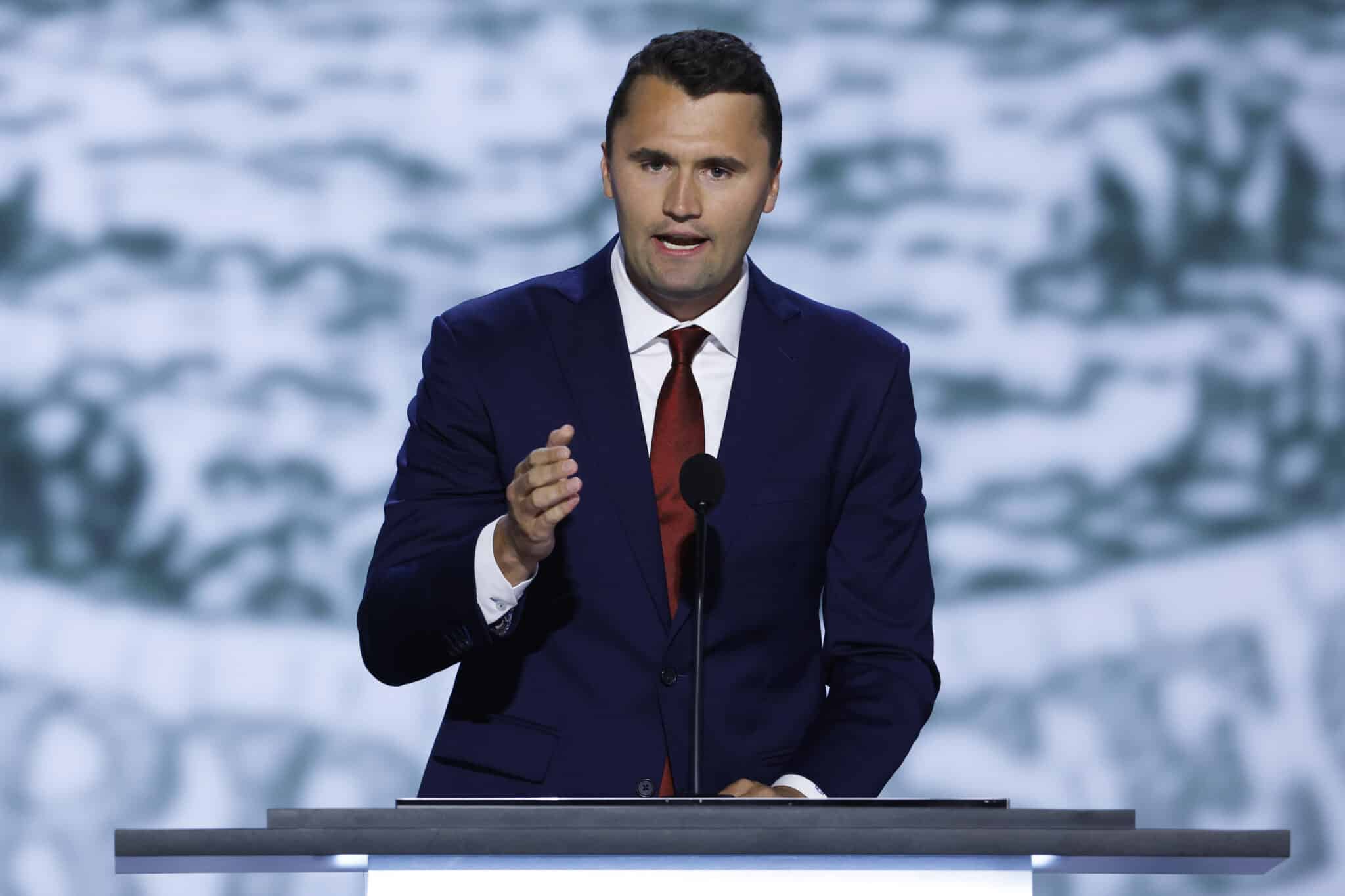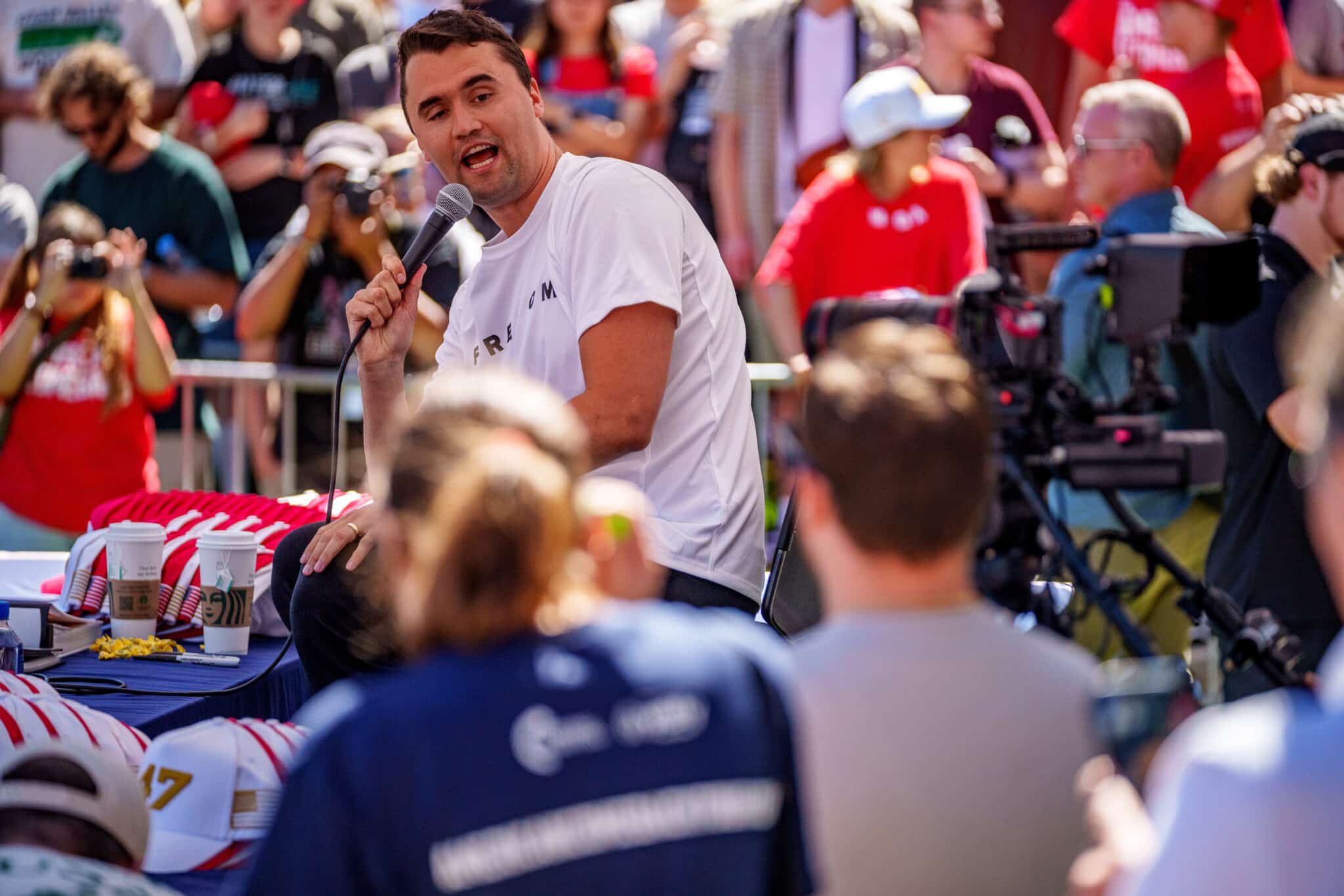The shocking assassination of Charlie Kirk, the 31-year-old conservative commentator and co-founder of Turning Point USA, has not only shaken politics but has also spilled into the media world, sparking controversy about how networks and journalists handled the tragedy.
The Shooting and Immediate Reactions
Kirk was fatally shot on September 10 during a rally at Utah Valley University. A single bullet struck him in the neck, and though he was rushed to a hospital, he died about 90 minutes later. His wife, Erika, and their two young children were reportedly present at the event but escaped unharmed. President Donald Trump was among the first to confirm Kirk’s death publicly, calling him “great and even legendary,” and announcing that American flags would be flown at half-mast nationwide.
As is common in today’s digital landscape, video clips of the shooting spread across social media within minutes, leaving news organizations scrambling to cover the story responsibly. Some, however, quickly came under fire for their handling of the breaking news. TMZ, for example, issued an apology after background laughter was overheard during a live report, clarifying that staff had been reacting to an unrelated video.
MSNBC Analyst’s Controversial Comments
The most high-profile fallout came at MSNBC, where analyst Matthew Dowd was asked to comment on “the environment in which a shooting like this happens.” In his remarks, Dowd suggested that Kirk himself had contributed to a divisive climate, calling him “one of the most divisive younger figures” and linking his rhetoric to a broader culture of “hateful thoughts, hateful words, and hateful actions.”
The comments were swiftly condemned across the political spectrum as being inappropriate in the immediate aftermath of a violent assassination. Viewers, critics, and even colleagues expressed outrage that such a statement could be made during a segment intended to cover a national tragedy.

MSNBC’s Response and Firing
Rebecca Kutler, president of MSNBC, issued a public statement distancing the network from Dowd’s remarks. She wrote:
“During our breaking news coverage of the shooting of Charlie Kirk, Matthew Dowd made comments that were inappropriate, insensitive and unacceptable. We apologize for his statements, as has he. There is no place for violence in America, political or otherwise.”
Soon after, it was confirmed that Dowd had been dismissed from the network. His departure underscored MSNBC’s effort to respond quickly to backlash and avoid accusations of partisanship or insensitivity.
Dowd’s Apology
Following his firing, Dowd turned to the social platform Bluesky to issue a personal apology. He wrote:
“I apologize for my tone and words. Let me be clear, I in no way intended for my comments to blame Kirk for this horrendous attack. Let us all come together and condemn violence of any kind.”
While some accepted his apology, others criticized the timing and tone of his initial remarks, arguing that they reflected a broader failure in media culture to set aside partisanship in moments of national grief.

Broader Implications
The incident highlights the delicate role of journalists and analysts during crises. Breaking news coverage often demands instant reaction, but words spoken in those moments can carry enormous weight — especially when the nation is reeling from political violence. Dowd’s firing demonstrates the consequences networks face when commentary crosses the line from analysis to perceived blame.
At its core, this episode is about more than one analyst’s career. It reflects the heightened scrutiny placed on media institutions in an era where political violence is real, video clips spread instantly, and viewers demand both empathy and accountability.


